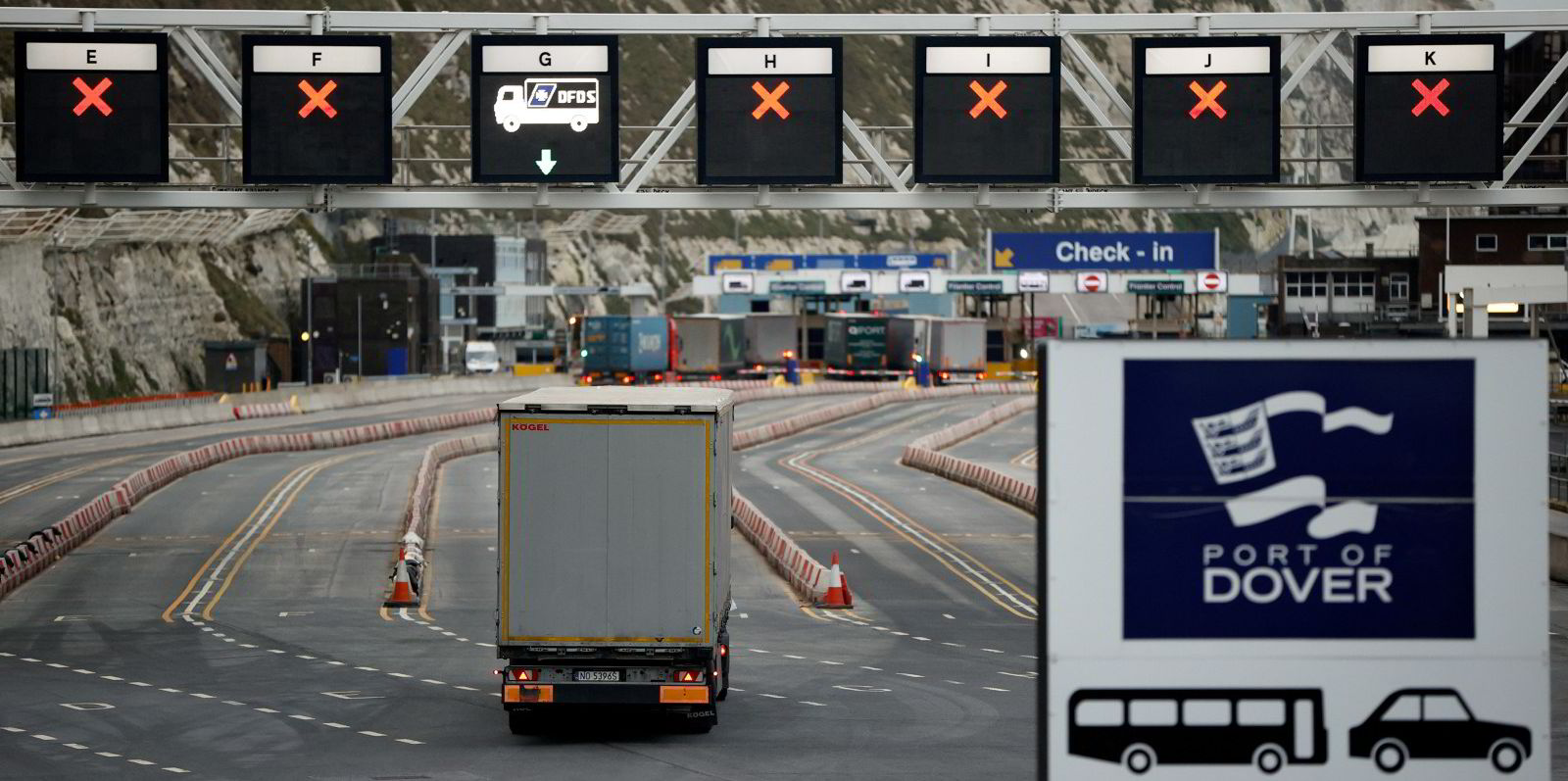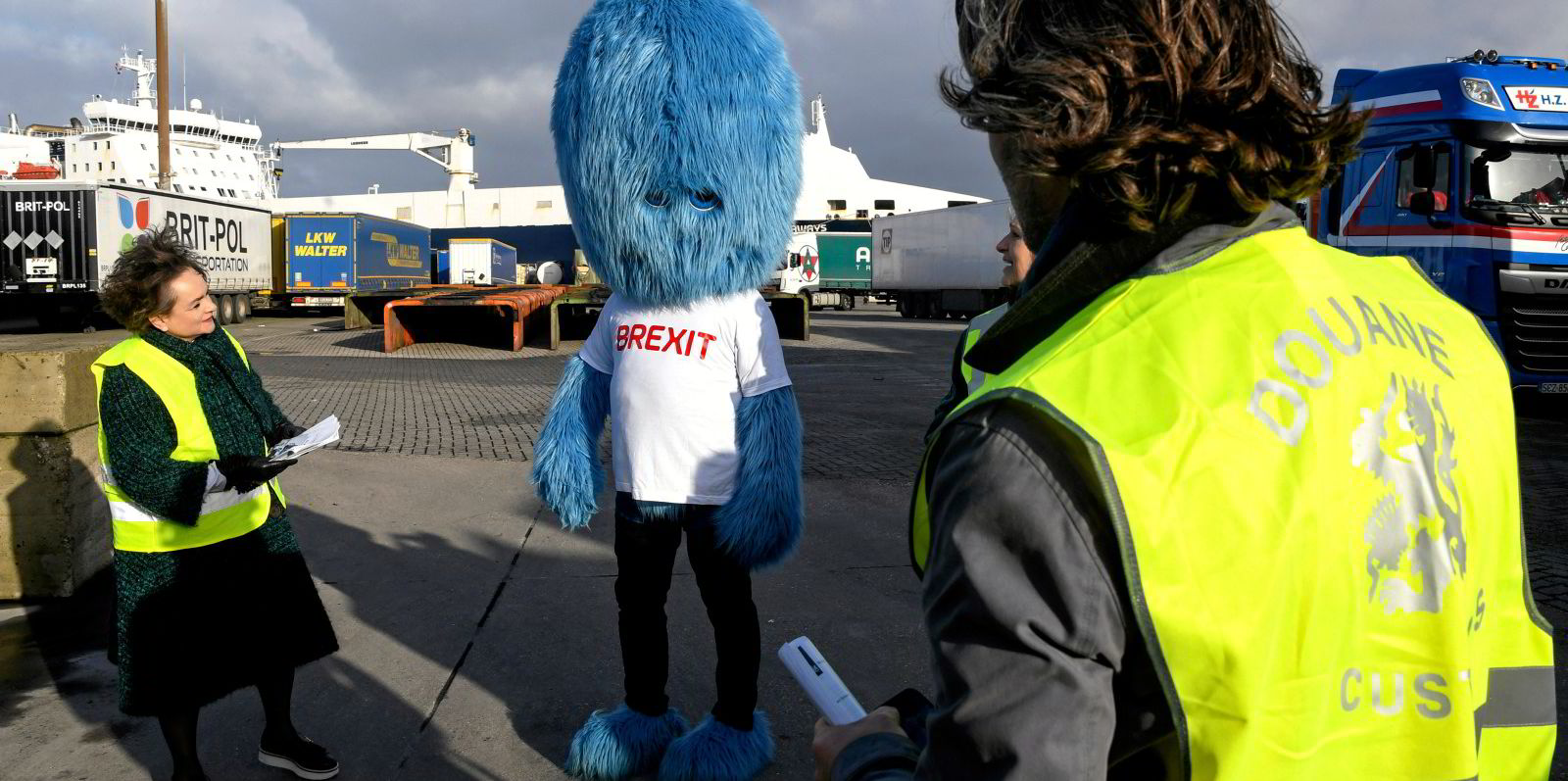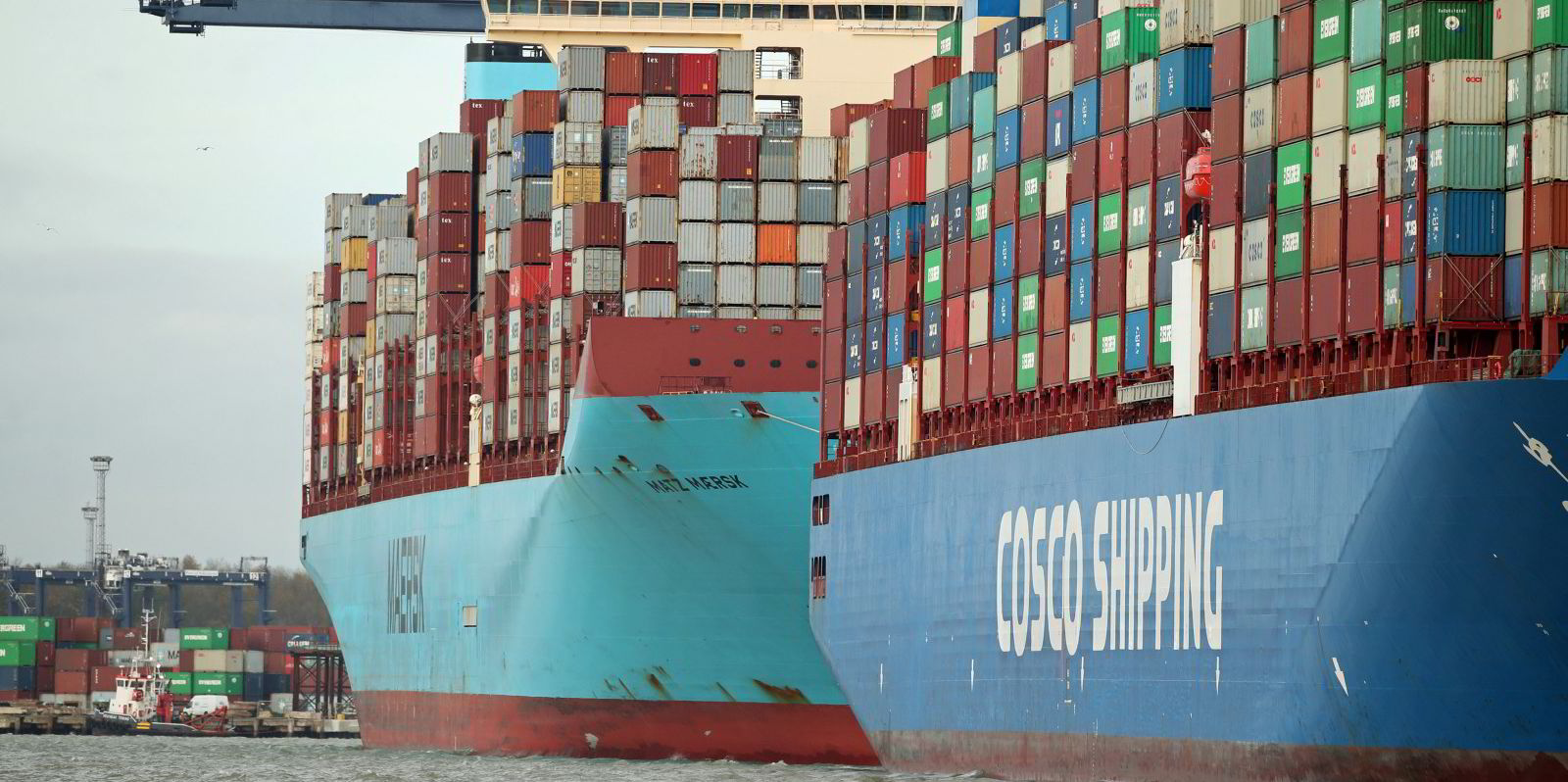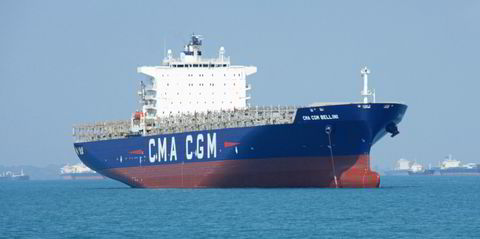Transport experts are warning of increasing ports and customs chaos as traffic begins to increase between the UK and Europe after a quiet start to the new year.
Cargo movement via the Dover-Calais ferry crossing and Channel Tunnel fell to about 2,000 trucks per day — from a norm of 5,000 to 6,000 — over the first two weeks of 2021, according to the Road Haulage Association.
The drop came as hauliers avoided border crossing problems in the wake of the UK’s exit from the European Union, and after a period of stock building by many shippers.
Major forwarding group DB Schenker has stopped shipments to the UK claiming only about 10% of the paperwork has been complete and free of errors amid problems with and lack of knowledge of new customs documentation required since Brexit.
“Schenker has been forced to put a temporarily hold on the acceptance of new consignments for shipment to the UK,” the company said.
Volumes to increase
The logistics group added that it “expects shipping volumes to increase further in January”.
Parcels delivery firm DPD temporarily suspended its service from the UK to the EU due to lack of customs data, stating that 20% of items had incorrect or incomplete information.
Error-strewn and incomplete documents are delaying full-load shipments, DB Schenker said, and consignments that are not properly declared cannot be delivered.
There are customs experts with 30 years’ experience who are baffled by what the new regulations mean.
Stephen Phipson
Mirko Woitzik, a freight risk intelligence solutions manager at supply chain risk analysis company Resilience360, said he did not expect logistics players to suspend deliveries so early, at a time when volumes were low.
“It is concerning that once volumes pick up, we will see more of this,” he said.
Problems in the first few days since Brexit are the “tip of the iceberg”, Hurricane Commerce said. The cross-border, e-trade consultancy said several UK online retailers have temporarily stopped taking orders from EU countries due to the extra paperwork needed.
“The compliance pressures on all parts of the cross-border supply chain are set to intensify even further with similar issues to be experienced in all EU countries to those current being experienced in the UK,” Martin Palmer, Hurricane’s chief content and compliance officer, said.
Waiting times were starting to increase this week as traffic built up at the tunnel. Woitzik said customs formalities were also taking longer now, as the paperwork “is not as digital as it could be” after delayed implementation and a lack of training for the new systems.
Traffic between Ireland and Europe is increasing to avoid the UK land route, which used to be the quickest, because of the issues.
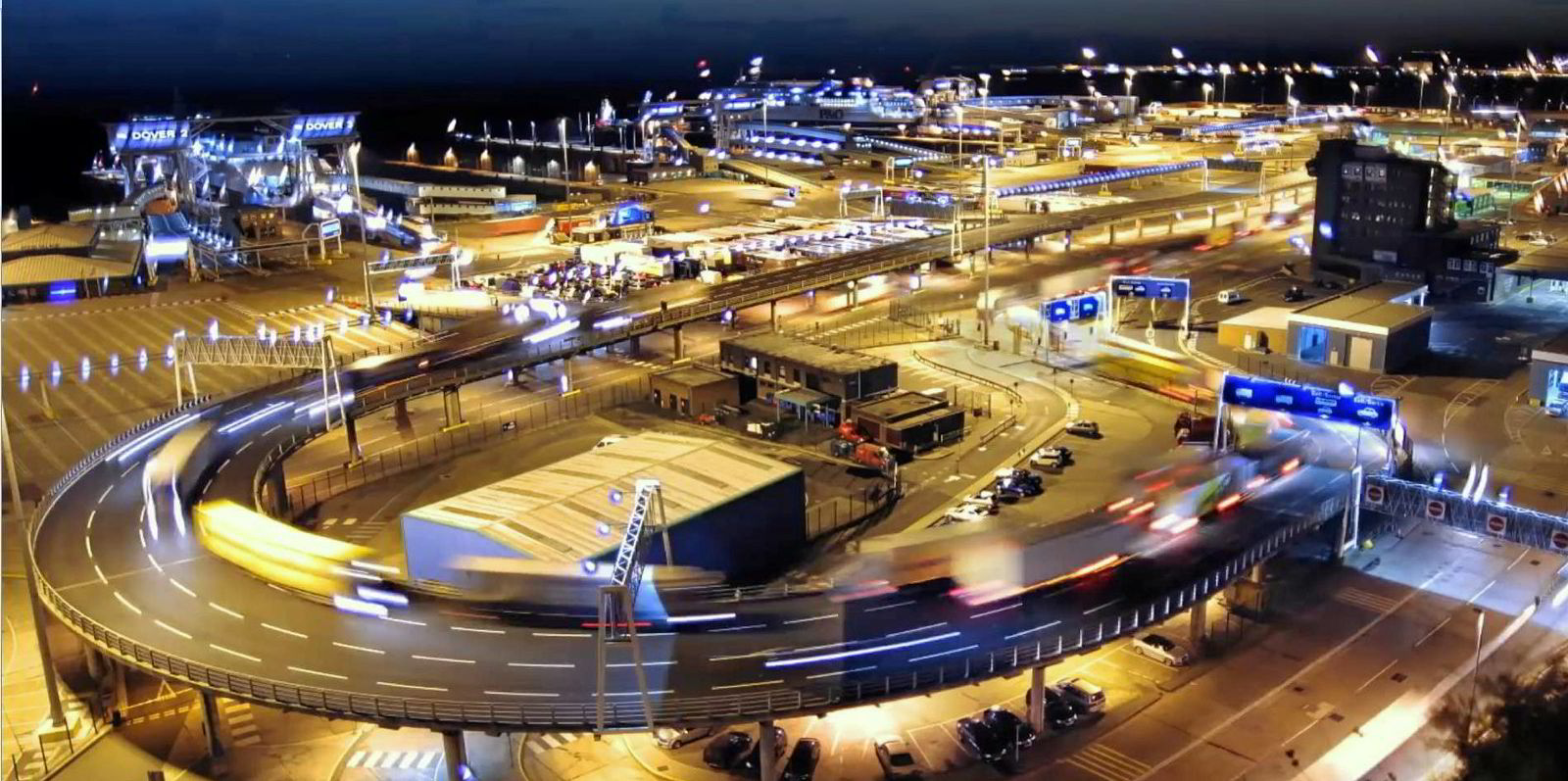
Stena Line is deploying its latest newbuilding, the 41,671-gt Stena Embla (built 2020), on a direct Rosslare to Cherbourg service, instead of between Belfast and Liverpool as originally scheduled.
“Clearly Brexit has created an increase in the demand for direct freight routes, and in particular driver accompanied freight,” Stena Line Irish Sea trade director Paul Grant said.
Rules of origin
Another hurdle resulting from the Brexit trade deal concerns "rules of origin", with the threat of tariffs due if goods do not meet the complex requirements or are not wholly made in either the UK or EU. The rules are likely to hit UK-based carmakers dependent on importing components made from parts produced in many countries.
Stephen Phipson, chief executive of the manufacturers’ organisation Make UK, told the Observer newspaper the trumpeted zero-tariff Brexit deal announced by the UK still left much to be negotiated with the EU.
“There are still substantial issues that need ironing out, with many months, if not years, of tough negotiations ahead,” he said.
“There are customs experts with 30 years’ experience who are baffled by what the new regulations mean, let alone small and medium-size businesses who have never had to deal with the kind of paperwork that is now required.”
Woitzik said many European transport companies and drivers are reluctant to send trucks to the UK for fear they will get stuck in the country. Reports suggested that lorry parks in Kent are filling up with vehicles that have been turned away and queues will continue to grow.
Containers that were dropped in the European ports of Rotterdam, Antwerp and Zeebrugge, when boxships diverted from Felixstowe and Southampton before the holiday period, are also expected to cause an increase in traffic looking to make shortsea crossings in the next few weeks.
